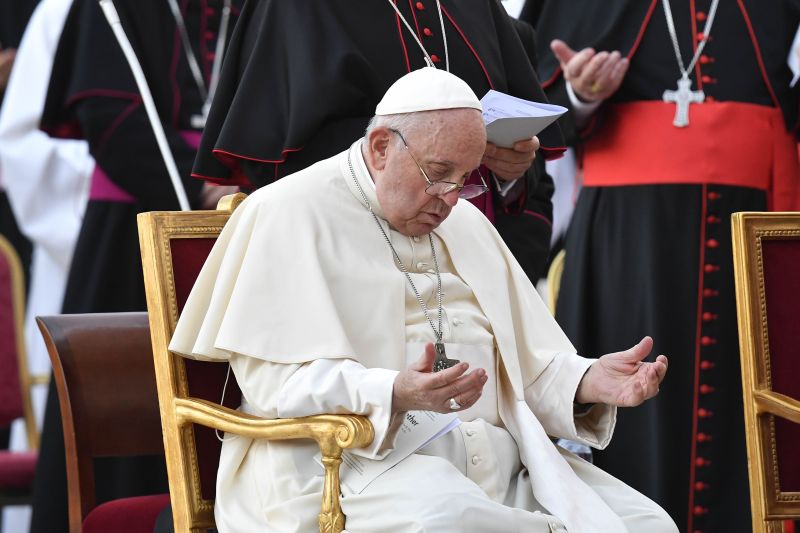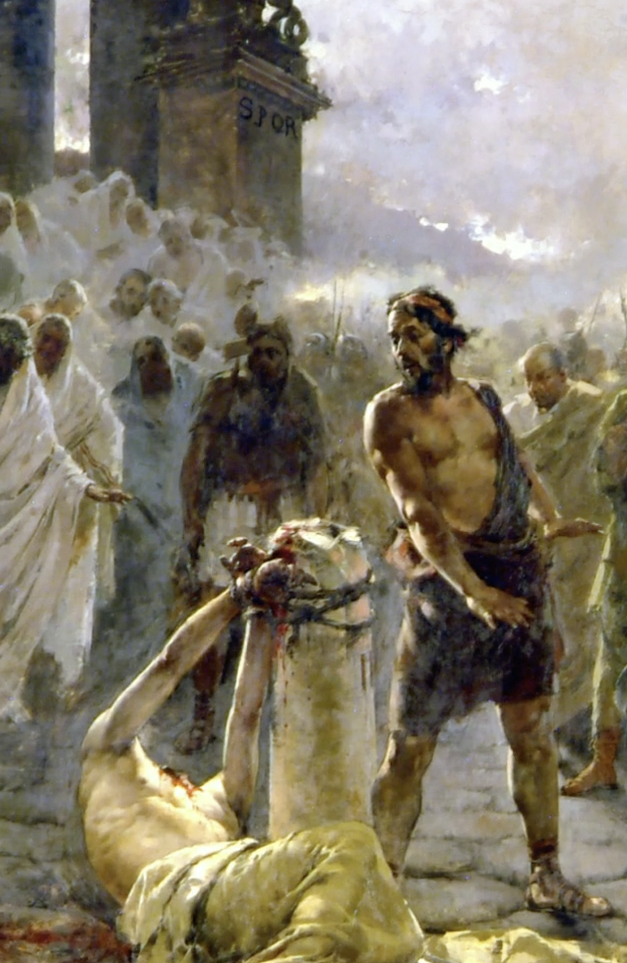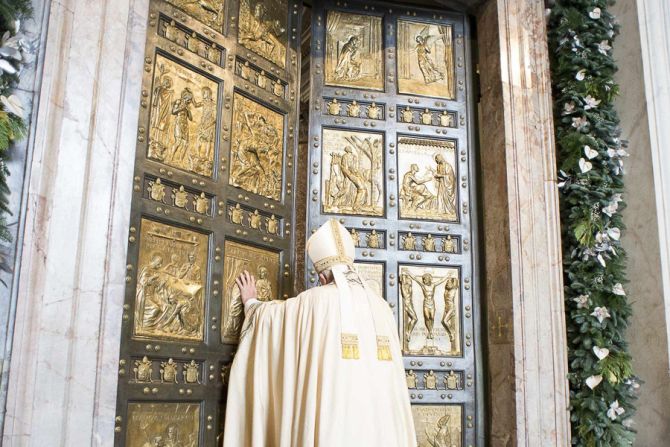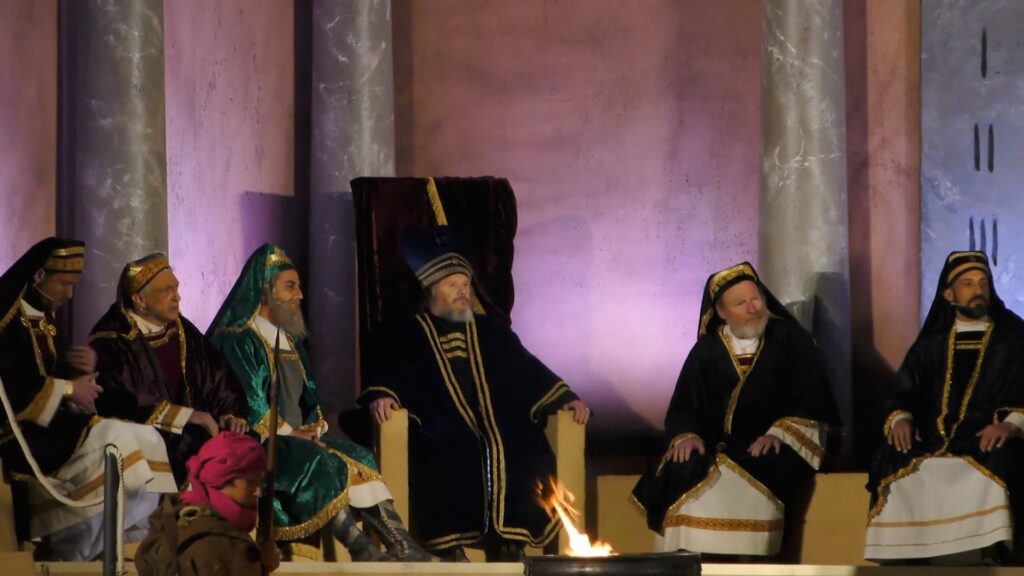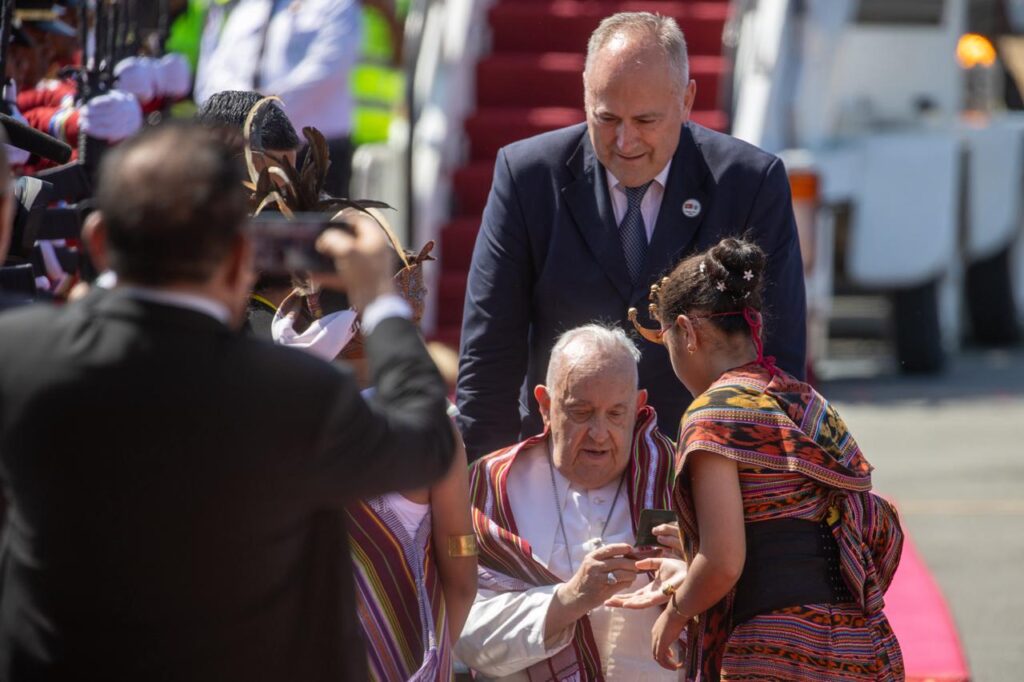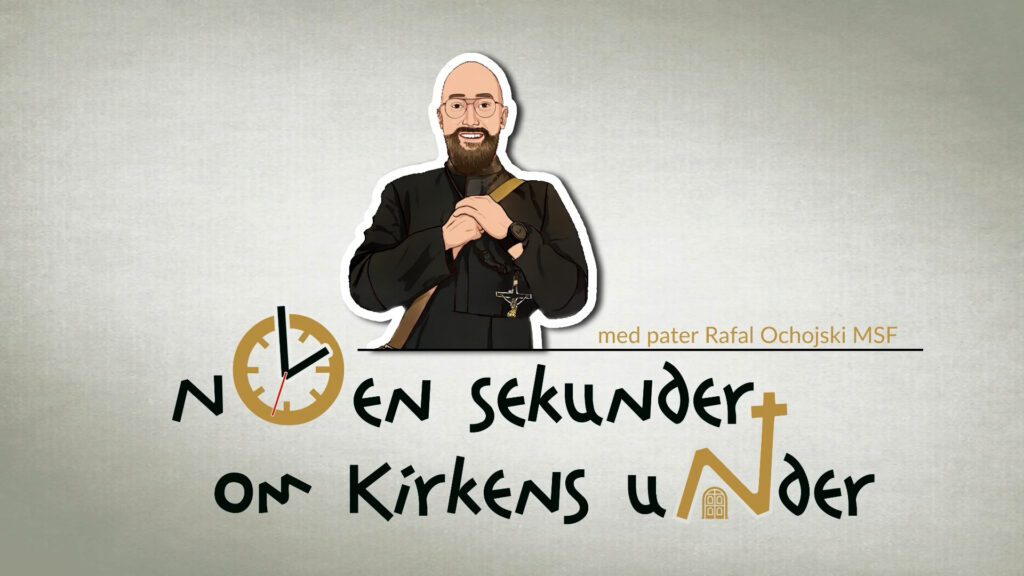Pope Francis Tells AI Leaders: No Machine Should Ever Choose to Take Human Life
By Courtney Mares
Pope Francis urged artificial intelligence leaders on Wednesday to “protect human dignity in this new era of machines.” In a message to an AI ethics conference in Hiroshima, Japan, attended by leaders from Microsoft, IBM, Cisco, the United Nations, and representatives from all major world religions, the pope highlighted the significant implications of AI for the future of war and peace.
The Holy Father called for a ban on lethal autonomous weapon systems—devices that use computer algorithms to independently target and engage weapons without human control. “No machine should ever choose to take the life of a human being,” Francis emphasized in the message published on July 10.
He underscored the symbolic importance of discussing AI ethics at Hiroshima, the site of an atomic bombing, reminding the world of the severe consequences of advancing technology without thorough ethical consideration. “It is crucial that, united as brothers and sisters, we remind the world that in light of the tragedy that is armed conflict, it is urgent to reconsider the development and use of devices like the so-called ‘lethal autonomous weapons’ and ultimately ban their use,” Francis said, reiterating a call he made at the G7 summit in Italy in June. “This starts from an effective and concrete commitment to introduce ever greater and proper human control.”
The two-day conference in Hiroshima gathered tech industry leaders and representatives of world religions, including Christianity, Judaism, Islam, Buddhism, Hinduism, Zoroastrianism, Bahá’í, and other Eastern religions. Brad Smith, the vice chair and president of Microsoft, noted that Hiroshima’s historical significance provides “a compelling backdrop to help ensure a technology created by humanity serves all of humanity and our common home.”
In one of the opening speeches, Rabbi Eliezer Simcha Weisz stressed that “as individuals of faith, we carry a unique responsibility to infuse our pursuit of AI with moral clarity and ethical integrity.” More than 150 participants from 13 countries attended the event, co-organized by the Vatican’s Pontifical Academy for Life, Japan’s Religions for Peace Japan, the Abu Dhabi Forum for Peace, and the Chief Rabbinate of Israel’s Commission for Interreligious Relations. Speakers included Amandeep Singh Gill, the U.N. secretary-general’s envoy on technology; Father Paolo Benanti, a professor of technology ethics at the Pontifical Gregorian University in Rome; and a survivor of the Hiroshima atomic bomb.
The Vatican has been actively engaged in discussions on AI ethics, hosting high-level dialogues with scientists and tech executives since 2016. Pope Francis has met with IBM executive John Kelly III, Microsoft’s Brad Smith, and Chuck Robbins, the CEO of Cisco Systems, in Rome, where they signed the Vatican’s AI ethics pledge, the Rome Call for AI Ethics. This document, by the Pontifical Academy for Life, underscores the need for ethical AI use according to principles of transparency, inclusion, accountability, impartiality, reliability, security, and privacy.
Pope Francis has chosen artificial intelligence as the theme for his 2024 peace message, recommending that global leaders adopt an international treaty to regulate AI development and use. At the G7 summit in June, he emphasized that human dignity necessitates human control over AI decisions. “We need to ensure and safeguard a space for proper human control over the choices made by artificial intelligence programs: Human dignity itself depends on it,” Pope Francis said.
This story was first published by CNA, EWTN Norway’s news partner. It has been adapted by EWTN Norway.
Photo credit:
Blue Planet Studio/Shutterstock



